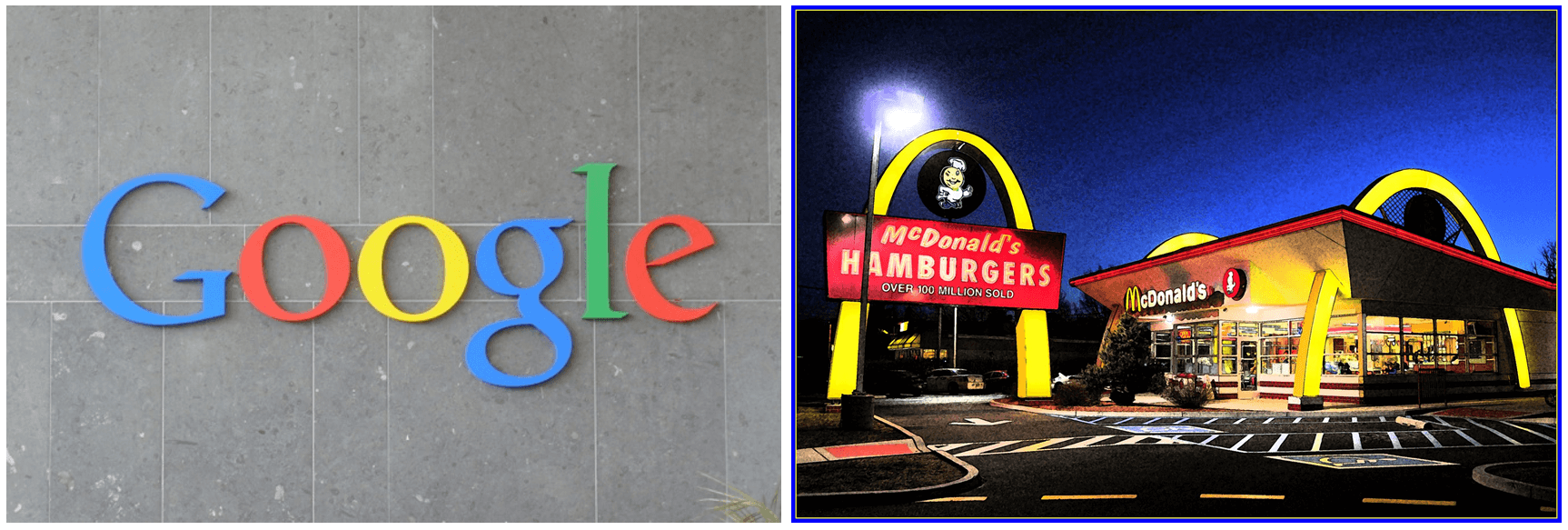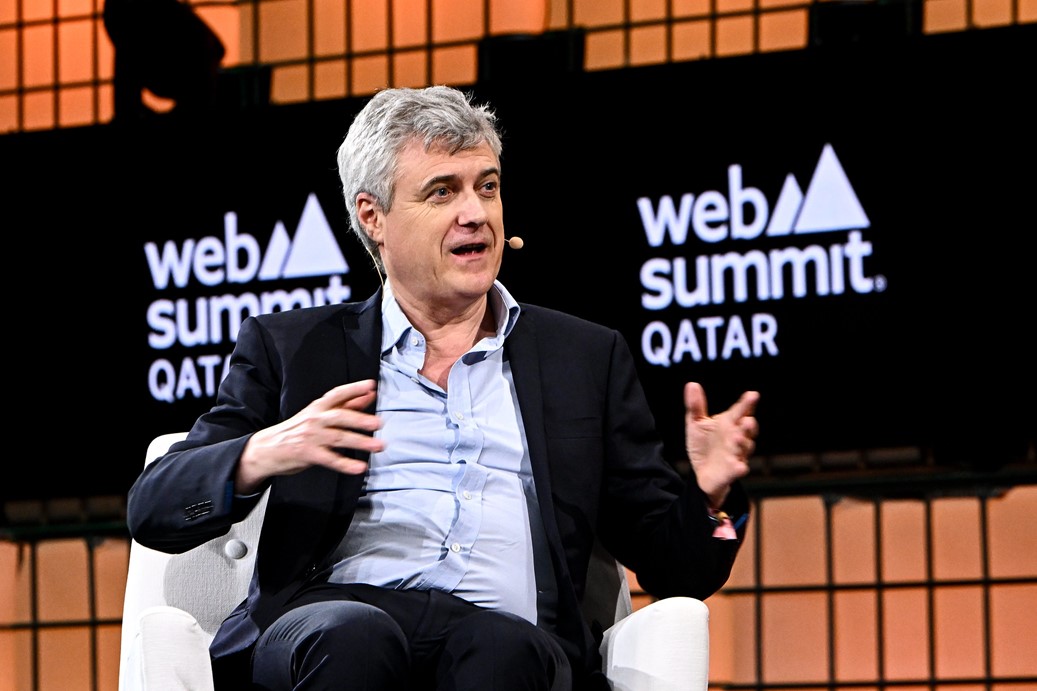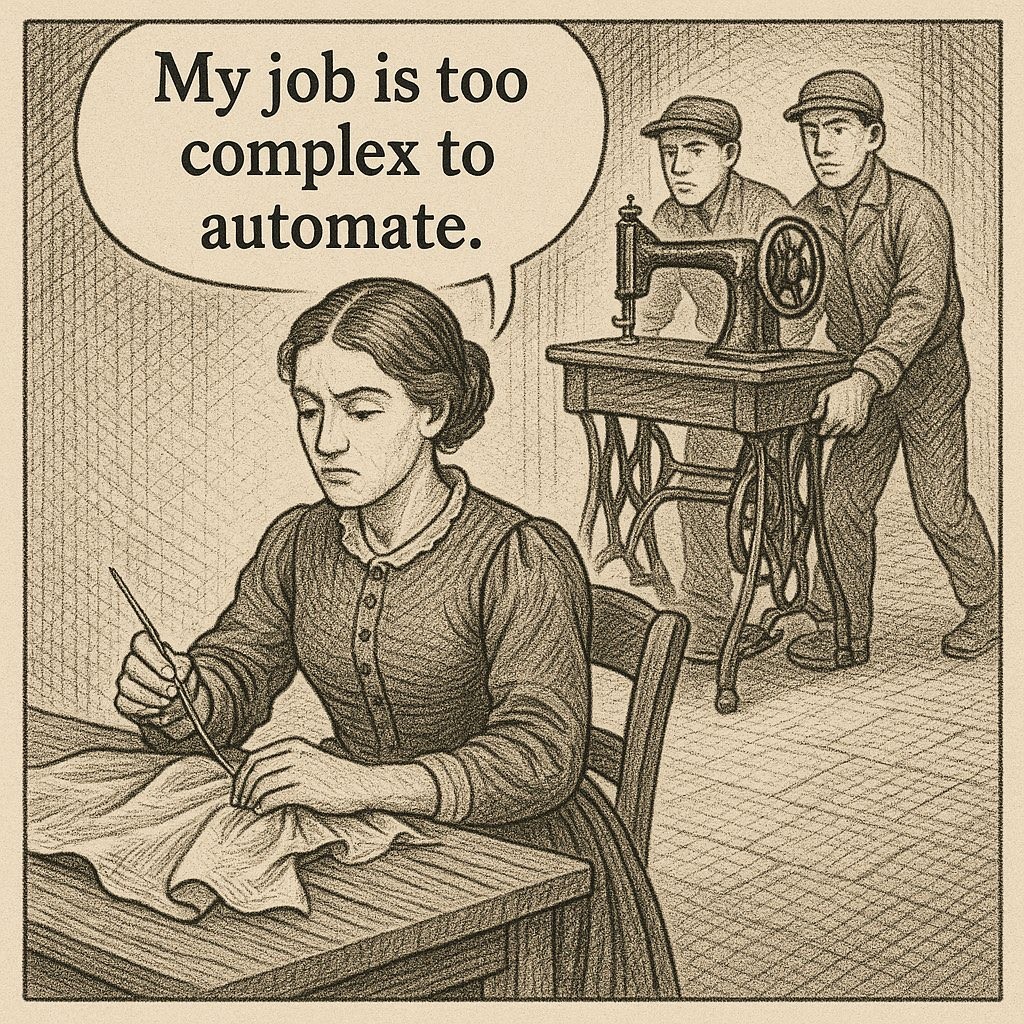In the early 2000s, I owned an advertising business.
We became one of the largest buyers of daytime TV ads in the country.
The business won some awards. It was a good time, with free profits to invest in a cheap sharemarket.

Source: Author
Do you remember the direct-to-consumer 0800 industry? It is a shadow of what it used to be. The old scheduled TV advertising business is no more.
Over a decade ago, the writing was on the wall. I had the opportunity to move to Europe, and then become a full-time investor.
Change and disruption come to upend many old business models
One company that presented incredible value on the London Exchange was the fashion and homeware brand Laura Ashley.
The company also owned a hotel in the Lake District, which was almost included for nix in the share price.
As I recall, at one point, you could buy the stock at a P/E ratio of around 4 and a dividend approaching 10%.

Source: Lewis’s / Laura Ashley
The furniture also suited our taste. We furnished our apartment with it. Eventually shipping it all back to Auckland. The pieces are still with us today.
Of course, newer, leaner business models had come to the sector. I managed to exit the stock before debt consumed revenue and the business went into liquidation.
It still serves as a warning. And a question you need to run over your portfolio every day: what could upend this business totally?
Today, AI threatens even the most technologically advanced companies
Google is a great business. You probably use it all the time.
Right now, Alphabet Inc [NASDAQ:GOOG] presents as one of the best value companies in the Magnificent Seven:
- It has a P/E of 21.70.
- A forward P/E of 22.05.
- A 5-year annual compound revenue growth of 16.70%.
That’s cheaper than McDonald’s [NYSE:MCD]:
- It has a P/E of 26.40.
- A forward P/E of 24.17.
- A 5-year CAGR of 3.90%.

Google, Dublin. Source: Carlos Luna / Flickr
McDonald’s, New Jersey. Source: Tony Fischer / Flickr
Generally, we don’t pursue large US tech companies in our wholesale strategy unless there’s overwhelming impetus. In such an over-analysed market, they are usually priced to perfection.
So, what is the market discounting with Google?
AI creates serious risk of cutting their lunch. You don’t need Google as you used to. Searches can be conducted entirely via an AI chatbot. Either independently or within a social-media site like X.
The direction of travel is for AI to become more advanced. It will produce more and more perfect answers to the questions you seek. It can analyse documents, provide reports, and act more powerfully than search alone.
For example, I had to update a legal document the other day. While I have some background in commercial law, previously I would either search on Google for similar documents or consult a lawyer.
Instead, Copilot AI was able to directly analyse the document from my desktop. It was also able to accurately identify and add a needed clause.
Several Google searches (and their advertising opportunities) went by the wayside.
This is now happening every moment of the day.
So while Google still has a great business with many tangents such as Gmail and YouTube, there is the risk of search and advertising slowing down. On top of this, the business is facing more regulation.
AI poses risk and opportunity for your investments and your wealth. But many jobs are also at risk…

Mark Read, CEO, WPP, Web Summit Qatar 2024.
Source: Web Summit Qatar / Flickr
Mark Read is the outgoing CEO of WPP plc, the world’s largest advertising company.
In June 2025, in his first interview since announcing he would step down, Read told CNBC that AI was totally disrupting the advertising business:
‘AI is going to make all the world’s expertise available to everybody at extremely low cost. The best lawyer, the best psychologist, the best radiologist, the best accountant, and indeed, the best advertising creatives and marketing people often will be an AI, you know, will be driven by AI.’
This threatens to upend many businesses. From Google to lawyers who draft contracts.


Source: Michael A. Arouet / X
But the more I think about it, there are many things AI can’t upend.
Physical products. Real estate. Key materials. And lived experience.
For example, the practice of good investing is not an algorithm. It comes from the direct experience of seeing industries like the TVC business and firms like Laura Ashley crumble away.
The independent-thinking moat
There is one thing AI is not very good at. Independent thought.
It cannot replace it. Because no matter how much information you have, that is never a substitute for experience.
AI is very good at constructing concepts from what is already there. It can search vast amounts of information and even make decisions based on that. Yet its ‘thinking’ is entirely reliant on what pre-exists. It lacks imagination.
That reminds me of the government here in New Zealand during the Covid pandemic.
It seemed very good at listening to experts and ideology. At least from one side.
As a result, the country was divided and the economy was damaged. Due to a ‘captain’s call’ on banning gas exploration, we’re now facing dwindling gas supplies and rising costs.


It seems not everyone was happy with the power of ‘experts’.
Source: Penny Marie / X
An AI bot would likely have made the same limited decisions. After all, there’s a huge amount of data and expert opinion on pandemic risks and the climate concerns of gas for it to draw on.
AI, like bureaucracy, struggles to deviate from consensus unless it has the real, lived experience to do so.
In the alternative, a true independent thinker willing to oppose one-sided experts and ideology may have seen the bigger picture.
This is why really good investment decisions — or for that matter experienced investors — can never be replaced by AI. You find value by being curious and thinking independently. That means looking beyond the data sets and conventional wisdom. Often being contrarian.
That is an antifragile skill requiring a very ornery human.
Regards,
Simon Angelo
Editor, Wealth Morning
(This article is the author’s personal opinion and commentary only. It is general in nature and should not be construed as any financial or investment advice. Please contact a licensed Financial Advice Provider to discuss your personal situation. Wealth Morning offers Managed Account Services for Wholesale or Eligible investors as defined in the Financial Markets Conduct Act 2013.)





Simon is the Chief Executive Officer and Publisher at Wealth Morning. He has been investing in the markets since he was 17. He recently spent a couple of years working in the hedge-fund industry in Europe. Before this, he owned an award-winning professional-services business and online-learning company in Auckland for 20 years. He has completed the Certificate in Discretionary Investment Management from the Personal Finance Society (UK), has written a bestselling book, and manages global share portfolios.